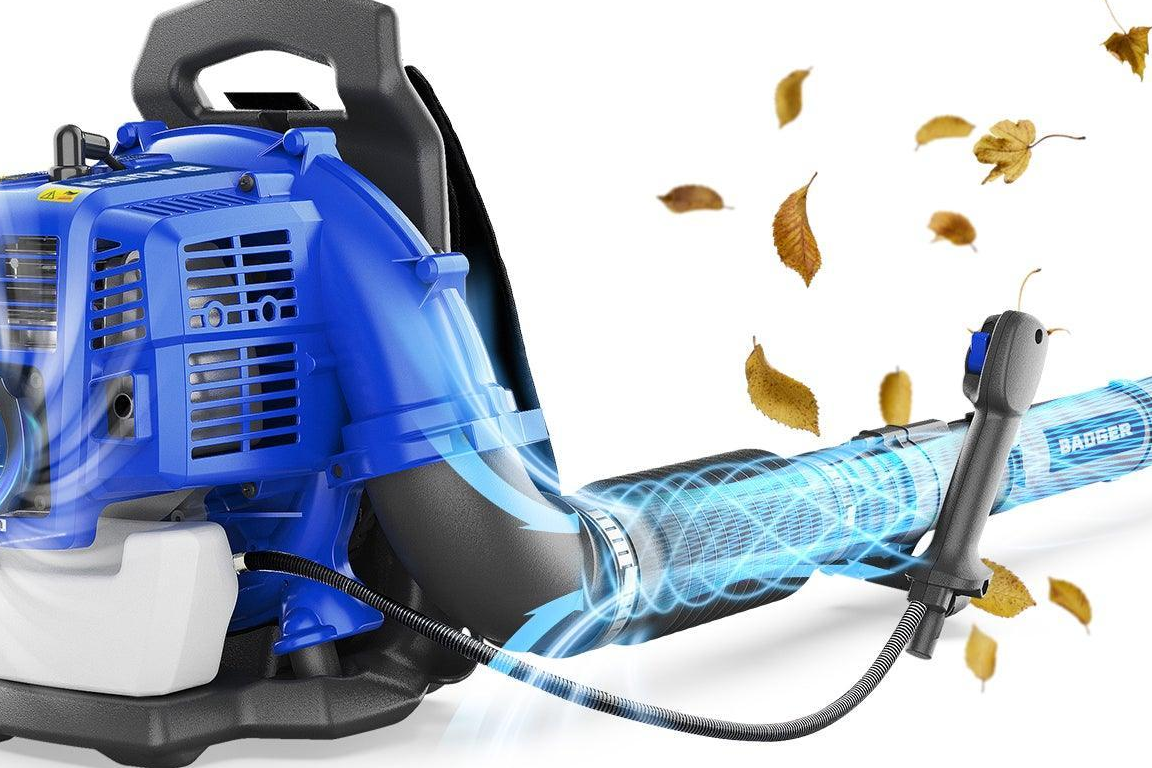
When autumn hits or yard debris piles up, a leaf blower becomes an essential tool. But with so many types available, choosing between a backpack leaf blower and a cordless leaf blower can be tricky. Each offers unique benefits depending on the size of your yard, how often you use it, and how much noise or pollution you're willing to tolerate.
In this guide, we’ll compare backpack leaf blowers, cordless leaf blowers, and even touch on whether a gas leaf blower still holds an edge in larger outdoor spaces.
Power & Performance: Who Wins the Muscle Match?
If you’re after raw blowing power, gas-powered backpack leaf blowers are still hard to beat. They offer high airflow and long runtimes, making them ideal for large properties or commercial landscaping work. However, recent innovations in cordless leaf blowers have narrowed the performance gap.
Modern cordless models, especially those with high-capacity lithium batteries and brushless motors, now rival smaller gas models in efficiency. Some designs even optimize airflow and reduce noise while maintaining competitive power output (Chen & Sun, 2015).
Noise Levels: Cordless is the Clear Winner
One of the biggest complaints about gas leaf blowers is the noise. Studies show that backpack blowers powered by 2-stroke engines often reach noise levels between 93–111 dB(A), which can be both hazardous to hearing and disruptive to neighborhoods (Pasanen et al., 2004).
In contrast, cordless electric leaf blowers are significantly quieter. Some robotic and battery-powered models reduce sound by over 17 decibels, making them a smart choice for residential areas (Lee & Chiang, 2022).
Ergonomics & Comfort: Who’s Easier on Your Back?
Backpack leaf blowers can distribute weight more evenly than handheld models, but they’re not without drawbacks. Users often experience fatigue, back strain, and posture issues—especially after long sessions (Sauk & Uğurlutepe, 2024).
Cordless models, especially those that separate the motor and battery into a backpack configuration, have improved ergonomics while reducing fatigue. They’re lighter, quieter, and more comfortable to operate for extended periods.
Health & Safety: Less Vibration, Fewer Problems
Prolonged use of gas-powered backpack blowers can lead to hand-arm vibration syndrome and other musculoskeletal issues. Vibration exposure often exceeds safe daily limits, especially in commercial or extended use settings (Gabasa et al., 2019).
Cordless leaf blowers, being electric, generally produce far less vibration and pose a lower long-term health risk.
Environmental Impact: Electric Takes the Lead
If eco-friendliness is a priority, cordless blowers win hands-down. Gas blowers contribute to air pollution, carbon emissions, and even groundwater contamination through spilled fuel. Cordless models eliminate local emissions entirely and have a lower overall carbon footprint, especially if charged using renewable electricity.
Cost & Maintenance: Long-Term Savings with Cordless
While gas backpack blowers often have a lower upfront cost, their maintenance needs (fuel, oil changes, filters, spark plugs) can add up over time. Cordless blowers have fewer moving parts and are virtually maintenance-free, which may result in lower total cost of ownership.
Does a Gas Leaf Blower Still Hold an Edge for Larger Yards?
Yes—gas-powered backpack leaf blowers still have advantages when it comes to large, demanding outdoor spaces. Their high airflow rates and long runtime make them ideal for clearing heavy, wet leaves, pine needles, or debris across wide areas like commercial properties, parks, or estates.
While cordless models are catching up in terms of performance, they often fall short in battery life and may require multiple recharges or backup batteries to cover large zones efficiently. If you need sustained power for extended use without interruption, gas remains the more reliable option.
However, this power comes at a cost: higher noise, more maintenance, increased fuel expenses, and greater environmental impact. For professional landscapers or those with acreage to manage, the trade-off may still be worth it.
Final Verdict
Backpack and cordless leaf blowers each have their advantages. Gas-powered backpack models offer unmatched power and long runtime—great for large yards. Cordless blowers, however, are quieter, cleaner, and easier to maintain, making them ideal for everyday homeowners. For those who want serious performance across the board, Wild Badger Power delivers. Our leaf blowers are built with advanced motors and high airflow to tackle even tough, wet debris quickly and efficiently—helping you keep your yard pristine with less effort.
References:
- Chen, J., & Sun, B. (2015). Optimization of Low-Noise and Large Air Volume Blower Based on Load Characteristic. Key Engineering Materials, 656-657, 700 - 705.
- Gabasa, S., Razali, K., As’arry, A., & Jalil, N. (2019). Vibration Transmitted to the Hand by Backpack Blowers. International Journal of Automotive and Mechanical Engineering.
- Lee, W., & Chiang, W. (2022). Development of a Leaf-Sweeping Robot. 2022 IEEE 5th International Conference on Industrial Cyber-Physical Systems (ICPS), 1-5.
- Pasanen, T., Rytkönen, E., & Sorainen, E. (2004). LEAF BLOWER NOISE.
- Sauk, H., & Uğurlutepe, K. (2024). Determination of Ergonomic Factors of the Backpack Blowers Used in the Windrow of Hazelnuts. Black Sea Journal of Agriculture.
